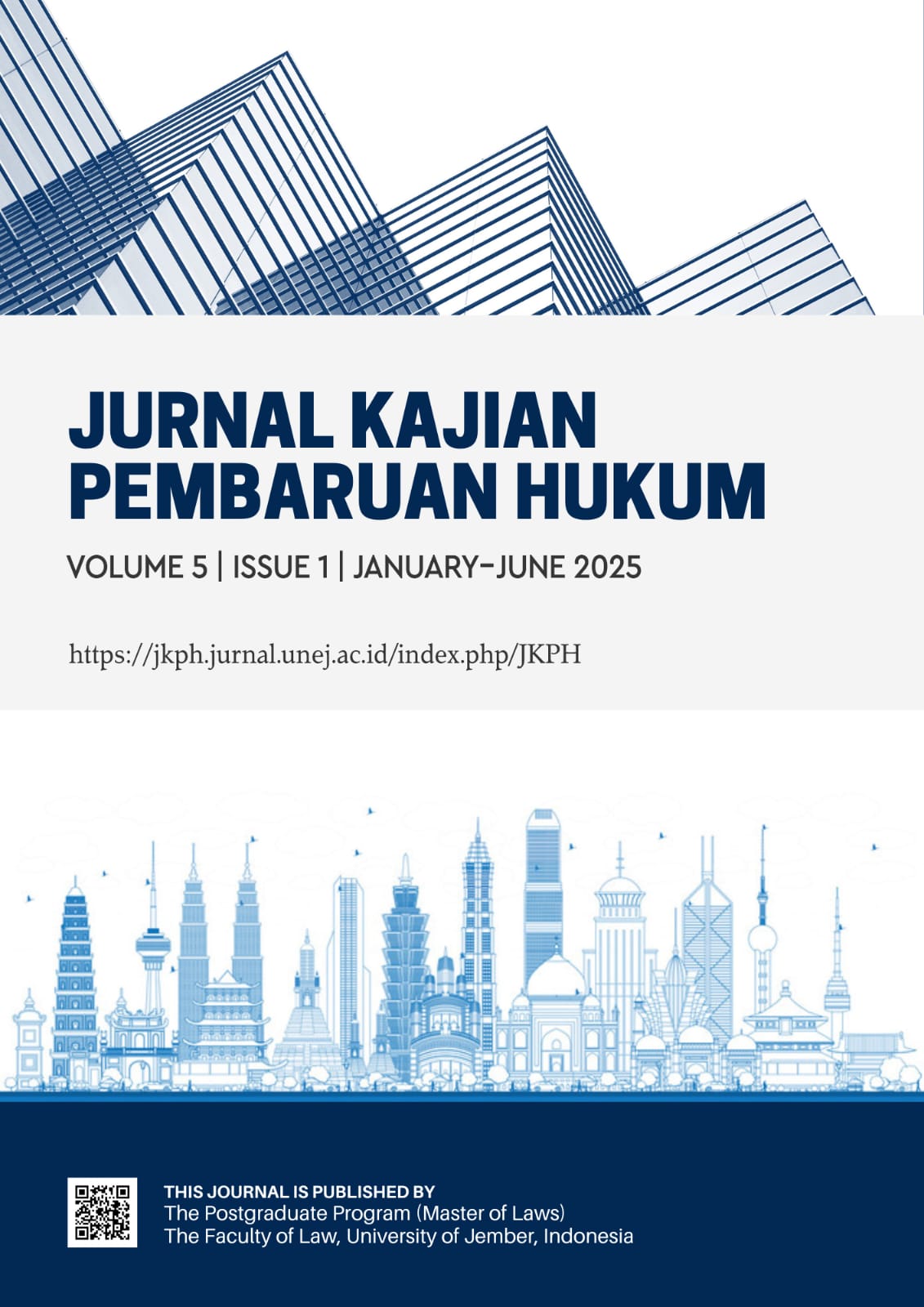Building Deliberative Democracy In Indonesia: Democracy Future and The Future of Democracy
DOI:
https://doi.org/10.19184/jkph.v5i1.53689Keywords:
Democracy, Deliberative, Future of DemocracyAbstract
This research aims to analyse the development of democracy in Indonesia and explore the potential of applying the deliberative democracy model as an alternative to strengthening the quality of future democracy. Indonesian democracy has experienced fluctuations since independence, ranging from parliamentary democracy and guided democracy to Pancasila democracy and reform democracy. Although Indonesia is now recognised as the largest democratic country in Southeast Asia, the quality of substantive democracy still faces various challenges, such as political oligarchy, low meaningful citizen participation, and procedural democracy practices that lack public dialogue. This research employs normative legal research methods with a statutory, historical, and conceptual approach. It utilises secondary legal sources, comprising primary, secondary, and tertiary legal materials, which are analysed qualitatively and deductively. The results indicate that deliberative democracy, which emphasises rational discourse, inclusive participation, and argument-based collective decision-making, can serve as a middle ground between rigid procedural democracy and ideal substantive democracy. The implementation of deliberative democracy in Indonesia requires institutional reform, the strengthening of citizen capacity, and the opening of deliberative spaces in both digital and institutional realms. This research recommends a paradigm shift in democracy towards a more participatory, reflective, and equitable direction as the foundation of future democracy.
Downloads
Download data is not yet available.
Downloads
Published
2025-05-24
Issue
Section
Articles
License
Copyright (c) 2025 Jurnal Kajian Pembaruan Hukum

This work is licensed under a Creative Commons Attribution-ShareAlike 4.0 International License.







